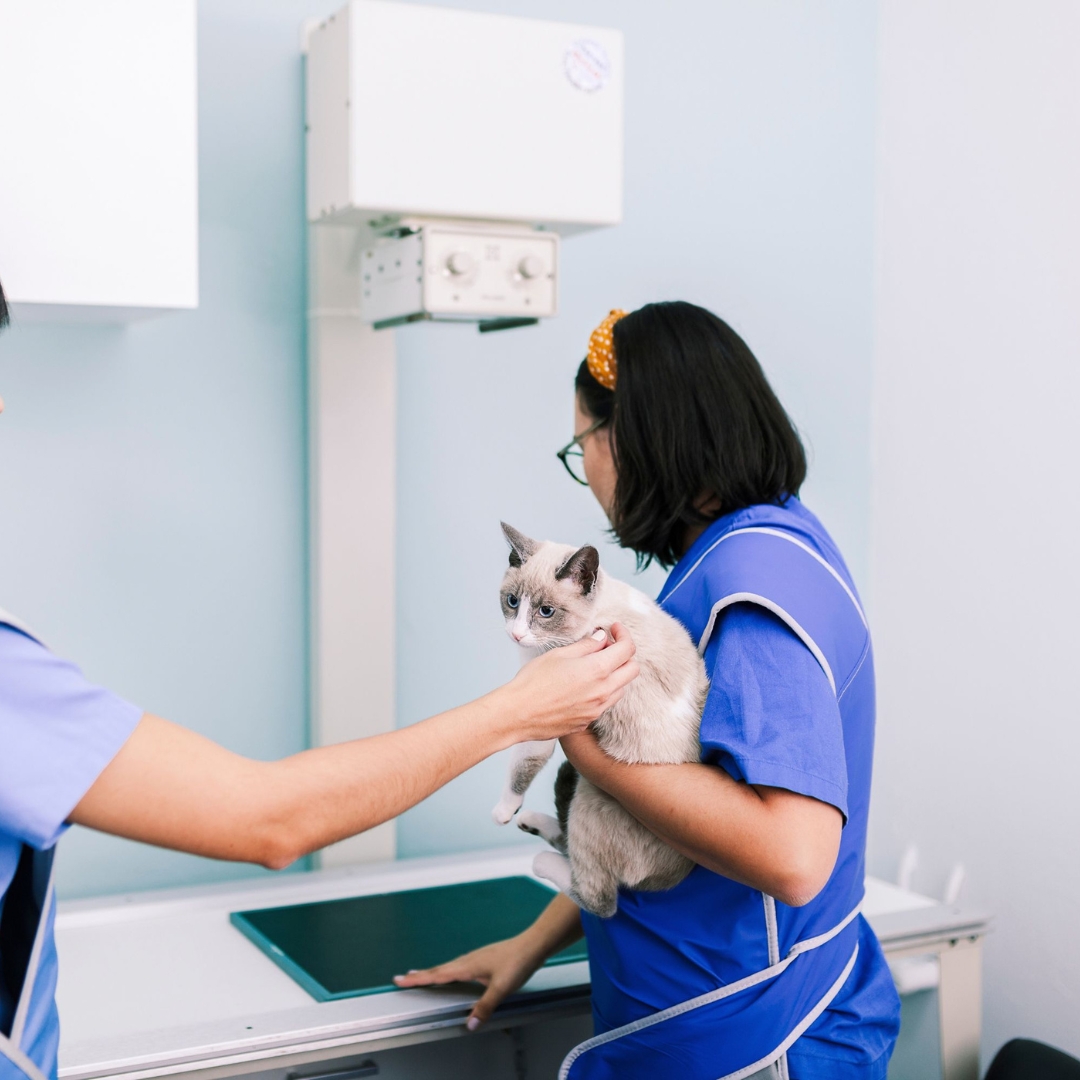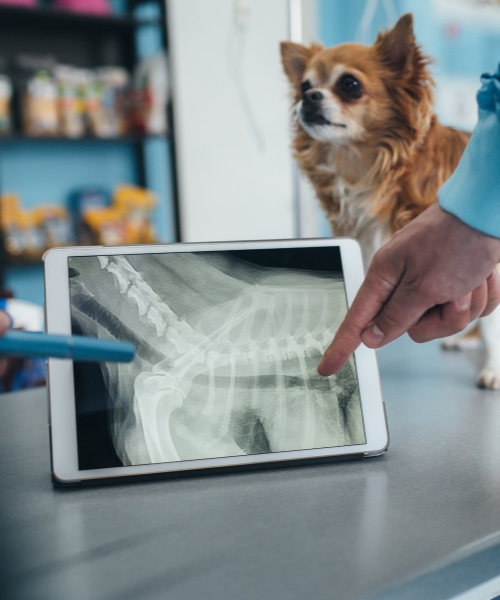Pet Radiography
At Happy Tails Veterinary Clinic, we provide advanced diagnostic services, including pet radiography (X-rays) in Wellington, FL. This essential tool helps us identify and treat a wide range of health issues, ensuring your pet receives the care they need promptly and effectively.

Why Choose Pet Radiography?
Pet radiography (X-rays) in Wellington, FL, allows us to examine your pet’s internal structures with minimal discomfort. This non-invasive procedure is invaluable for diagnosing a variety of conditions, including:
- Bone fractures and joint issues
- Foreign objects ingested by pets
- Dental problems, such as impacted teeth
- Heart and lung abnormalities
- Bladder stones or urinary blockages
- Tumors
At Happy Tails Veterinary Clinic, we prioritize your pet’s safety by using advanced equipment that minimizes radiation exposure while delivering high-quality images.
Why Choose Pet Radiography?
Pet radiography (X-rays) in Wellington, FL, allows us to examine your pet’s internal structures with minimal discomfort. This non-invasive procedure is invaluable for diagnosing a variety of conditions, including:
Difficulty Breathing
When a pet is experiencing difficulty breathing, it is often a medical emergency. Labored or shallow breathing, wheezing, or persistent coughing can indicate serious underlying conditions such as respiratory infections, asthma, heart disease, or fluid buildup in the lungs.
Persistent Limping
Limping or lameness that does not improve could indicate a fracture, sprain, ligament damage, or other orthopedic issues.
Painful Areas
Swelling or localized pain may signal trauma, abscesses, infections, or even tumors. Radiography can help veterinarians determine the source of swelling and assess if deeper structures, such as bones or internal organs, are involved.
Any Vomiting or Diarrhea
Frequent vomiting or diarrhea can indicate a range of health concerns, from dietary indiscretion to infections or serious gastrointestinal conditions. If symptoms persist, radiographs and other diagnostics can help identify underlying causes such as blockages, inflammation, or organ abnormalities, ensuring timely and effective treatment.
What to Expect During Your Visit
When you bring your pet in for radiography, our team takes every step to ensure their comfort and well-being. Depending on the area being examined, mild sedation may be recommended to keep your pet calm and still. This helps us capture clear and accurate images.
After the X-rays are taken, our veterinarians will review the results and discuss their findings with you. We’ll explain what the images reveal and recommend next steps, whether that involves further testing, treatment, or monitoring.

